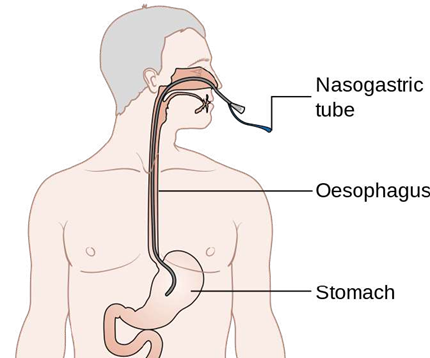Which is the term for a urine output less than 400 mL per day?
Anuria.
Oliguria.
Polyuria.
Dysuria.
The Correct Answer is B
Oliguria is the term for a urine output less than 400 mL per day. This can indicate dehydration, kidney failure, urinary obstruction, or other conditions that affect urine production.
Choice A is wrong because anuria is the term for a urine output less than 100 mL per day.
This is a more severe form of oliguria and can indicate complete kidney failure or urinary obstruction.
Choice C is wrong because polyuria is the term for a urine output more than 3000 mL per day.
This can indicate diabetes mellitus, diabetes insipidus, diuretic use, or excessive fluid intake.
Choice D is wrong because dysuria is the term for painful or difficult urination.
This can indicate urinary tract infection, kidney stones, bladder inflammation, or other conditions that affect the urinary tract.
Nursing Test Bank
Naxlex Comprehensive Predictor Exams
Related Questions
Correct Answer is C
Explanation
A urinary tract infection (UTI) is a common complication after bladder cancer surgery, especially if the patient has an indwelling urinary catheter.
A UTI can cause symptoms such as fever, pain, burning or urgency when urinating, blood in the urine, or cloudy or foul-smelling urine.
Choice A is wrong because urinary retention (the inability to empty the bladder completely) is unlikely to occur with an indwelling catheter, which drains urine continuously.
Choice B is wrong because urinary incontinence (the loss of bladder control) is more likely to occur after partial or radical cystectomy, which remove part or all of the bladder, respectively.
In these cases, reconstructive surgery is needed to create a new way for urine to leave the body.
Choice D is wrong because urinary urgency (the sudden and strong need to urinate) is also more likely to occur after partial or radical cystectomy, which can affect the nerves and muscles that control urination.
Urinary urgency can also be a symptom of a UTI, but it’s not the only one.
Correct Answer is D
Explanation

Nasogastric suction removes gastric secretions that contain potassium, leading to a loss of potassium from the body. This can cause hypokalemia, which is a low level of potassium in the blood.
Choice A is wrong because Addison’s disease causes hyperkalemia, which is a high level of potassium in the blood.
Choice B is wrong because tissue damage can release potassium from the cells into the blood, causing hyperkalemia.
Choice C is wrong because uric acid level is not related to potassium level.
Uric acid is a waste product of purine metabolism that can cause gout or kidney stones if elevated.
Whether you are a student looking to ace your exams or a practicing nurse seeking to enhance your expertise , our nursing education contents will empower you with the confidence and competence to make a difference in the lives of patients and become a respected leader in the healthcare field.
Visit Naxlex, invest in your future and unlock endless possibilities with our unparalleled nursing education contents today
Report Wrong Answer on the Current Question
Do you disagree with the answer? If yes, what is your expected answer? Explain.
Kindly be descriptive with the issue you are facing.
